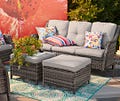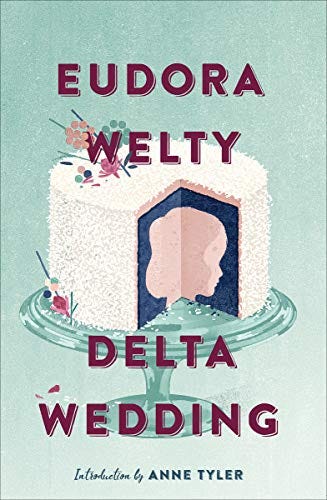Dear Kate,
It’s Tuesday, four weeks since I’ve moved into a new home. The amount of money we’ve spent is astonishing: A new mattress, a new comforter, new sheets. A dining table, dining chairs, placemats. A Costco membership. Groceries from Costco to put on the dining table. Adult life is expensive.
It’s thrilling, how nice it all is. We walk our subdivision’s wooded trails and listen to chickens cluck. We touch the wet noses of dogs through the fence. We sip chamomile tea on the back porch and watch the sunset. It’s a pleasure to create a new life, fresh and lovely.
In the beginning, you must buy things. And in the beginning, it’s fun. There’s a thrill when you buy just the right picture frame. A zip of pleasure when you find perfect chairs on Facebook Marketplace. It’s proof of the life you’re creating: “I will be the sort of person who has a set of six dining chairs.” “I will be the sort of person who hosts dinner parties.”
There are so many things to buy. Things for every room. In our first week, we bought office supplies (desks, papers, pens); kitchen supplies (baskets, bins, Tupperware); laundry supplies (detergent, paper towels, soap.) Target sells something for every facet of human life. Most of these are necessary goods: we need laundry detergent. We need toothpaste. I’m not talking about luxury shopping sprees here; I’m talking about trips to Costco! But still, browsing the aisles of suburbia is alluring: choosing a delicious flavor of Bounty Unstoppables Scent Boosters for the washing machine, picking a Bath & Body Works candle to put on my desk.
And somewhere along the way, a feeling emerges: Wanting. Wanting more. There are so many things to want. When you change your address, catalogs arrive on your porch. Coupons arrive in your mailbox: 20% off at Wayfair, 15% off at At Home, 10% off at West Elm. It’s addictive. What about new end tables from IKEA? What about plates from Crate & Barrel?
“Don’t you want to have a nice home?” the catalogs ask. “Don’t you want to be a good person?”
Of course you do. After the house, I turned my gaze to the backyard. I had dreamed of an oasis, a place to lounge and read books, a place to gather friends under the stars. I could be a good person if I had a place like that. I could be welcoming, gracious, and relaxed. I could be happy, if only I had the Rockbridge Gray All-Weather Wicker Cushioned Patio Sofa & Ottoman Set by Real Living.
So I bought it. For $400, the Rockbridge Gray All-Weather Wicker Cushioned Patio Sofa & Ottoman Set by Real Living promised to “create an inviting place to gather in the great outdoors.” It came in a gigantic cardboard box. My family drove over to help me pick it up. We spent hours on the back porch assembling it. We tightened screws and twisted in fasteners, three people bent over a pile of wood and plastic. The afternoon heat boiled over. We collapsed in a sweaty mess. The couch was done.
Here’s what I have to say: The Rockbridge Gray All-Weather Wicker Cushioned Patio Sofa & Ottoman Set by Real Living is a fantastic couch. I love it. I do use it to read books, and I do use it to host our friends. From our patio’s couch, we watch swallows build a tiny nest of sticks and twigs. We watch a squirrel chew on an apple core. We drink our chamomile tea.
But from our couch, I also notice an important distinction: It is not because I am sitting on The Rockbridge Gray All-Weather Wicker Cushioned Patio Sofa & Ottoman Set by Real Living that I am joyful or fulfilled. It’s because of what the couch allows me to do. It gives me a place to read, write, gather, talk, listen. It’s simply a tool—a means to an end, not an end itself.
That’s what I have learned about consumption: It must not be done for the short-term pleasure of buying, but for the long-term joy of living.
There’s something so tiresome about consumption on its own: Buying, buying, buying. It’s hollow, endless. Your house may look beautiful, but your soul will be worn thin. Why? Because there is never enough. Shopping for pleasure contributes to what psychologists call “the hedonistic treadmill,” a desirous loop without any long-term satisfaction. If one couch makes us happy, will two couches make us content? No.
But everything about our culture tells us couches could make us content. In our culture, consumption is a kind of hobby. It’s how we express ourselves: The clothes we wear, the cars we drive, the food we eat. We spend so much time thinking about what to buy and where we will buy it. Whether we’re scrolling Instagram, driving past billboards, listening to podcast ads, or clicking around online, shopping is constant.
At the beginning of the spring, I was so excited to buy, organize, and arrange items for our new home. But a life lived only to make money and spend it is dreary. There is pleasure, but no joy.
In truth, what I was excited about wasn’t consumption. It was creation—the creation of our home, our place to gather and enjoy. That’s different. That’s full of purpose and connection.
Human beings aren’t meant to just consume. We’re meant to create. We’ve always been craftsmen—dancers, songwriters, blacksmiths, architects, bakers, cobblers, painters. We’ve told stories and drawn pictures since the dawn of time. Creativity is a uniquely human talent. But somewhere along the way, as we went from craftsmen to consumers, buying what we needed at Walmart, forgetting how to create anything for ourselves, we learned a new outlet for our creativity: Shopping. So often, I think our love of consumption comes from misplaced creativity, a desire to make and share beauty.
So at our house, here’s the rule I’m setting: consumption must be a means of creation. A means for setting yourself up to make something wonderful with your mind or your hands. Buy a desk so you can sit down to write. Buy candles for the guest bedroom to create comfort for friends. Splurge on the patio couch to read in the sunshine. Use the flicker of pleasure from consumption to ignite a larger fire within, the joy of creation. With creation, consumption finds meaning.
Because consumption alone shouldn’t be meaningful. Brands tell us our consumption should say something about our moral beliefs, our social values, our politics. But why should consumption be the method through which we shape and influence the world?Why not creation?
Thinking this way gives you access to a magical word: Enough. Because at some point, you need a break. You can’t spend all of your time making money and spending it. At some point, you have to decide you’re happy with what you have — and stop looking for more.
Already our patio furniture has some sunspots, a few stains from the squirrel and his snacks. Does this mean we should race off and buy another one? No. Because I can still read my books just the same on a couch that’s been bleached by the Texas sun as one that’s just come out of a box. If I’ve decided that’s alright, then I’m free. I’m free to sit, rest, and kick back. I’m free to do what I really love: Creating peace. Creating joy.
Because at some point, you must turn inward and look deeper, beyond the allure of shopping, buying, wanting. If you look within yourself, I suspect you might find something more interesting than a consumer. You might find a singer, or dancer, or reader, or baker, or gardener, or artist, or athlete, or friend—someone who is only longing to create.
XOXO,
Ali
My Book Rec: Delta Wedding
The book: Delta Wedding by Eudora Welty
Why I’m recommending it: In her book These Precious Days, Ann Patchett wrote an essay about her love for Eudora Welty’s writing. I immediately bought this book. Boy, I’m glad I did. It’s lovely. It’s about a Southern wedding in 1923, with descriptive sentences that you can taste and touch. I’ve never been to the Mississippi Delta, but somehow now I have been. It’s sharp, funny, and just as rich as wedding cake.





This was so lovely, Ali. I felt as if we were sitting in your backyard together, relaxed, content and enjoying simply BEING. Your insight is spot on. Can we be friends IRL? :)